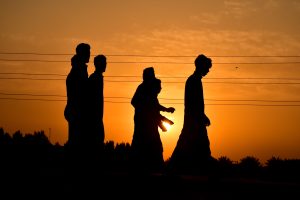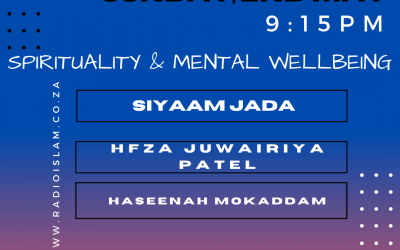The word Thikr has many meanings. It means:
- Allah's Book and its recitation
- Prayer
- Learning and teaching
The author of Fiqh al-sunna said: Sa'id ibn Jubayr said, "Anyone engaged in obeying Allah is in fact engaged in the remembrance of Allah." Some of the earlier scholars tied it to some more specified form. Ata said, "The gatherings of dhikr are the gatherings where the lawful and the prohibited things are discussed, for instance, selling, buying, prayers, fasting, marriage, divorce, and pilgrimage."
Qurtubi said, "Gatherings of dhikr are the gatherings for knowledge and admonition, those in which the Word of Allah and the Sunnah of His Messenger, accounts of our righteous predecessors, and sayings of the righteous scholars are learned and practised without any addition or innovation, and without any ulterior motives or greed."
d. Invocation of Allah with the tongue according to one of the formulas taught by Rasulullah Sallallahu Alayhi Wa Sallam or any other formula.
e. Remembrance of Allah in the heart, or in both the heart and the tongue.
We are concerned here with the last two meanings, that of mention of Allah, as in the verse, "The believers are those who, when they hear Allah mentioned, their hearts tremble" (al-Anfal), and Rasulullah SAW's saying in Tirmidhi and Ibn Majah from Ibn Jubayr: "The best dhikr is La ilaha illallah ." Rasulullah SAW did not say, "the best dhikr is making a lecture"; or "giving advice"; or "raising funds." We are also concerned here with the meaning of remembrance through the heart, as in the verse: "The men and women who remember Allah abundantly" (33:35). Rasulullah SAW both praised and explained what is in the latter verse when he said, as it is related in Muslim, "The single-hearted are foremost." When he was asked, "O Messenger of Allah, who are the single-hearted?" he replied, "The men and women who remember Allah abundantly." Rasulullah SAW further elucidated the role of the heart in effecting such remembrance when he said to Abu Hurayra RA: "Go with these two sandals of mine and whoever you meet behind this wall that witnesses that there is no god except Allah with certitude in his heart, give him glad tidings that he will enter Paradise ." (Narrated by Muslim)
Dhikr may sometimes mean both inner remembrance and outward mention, as in the verse "Remember Me, and I shall remember you" (2:152) when it is read in the light of the hadith qudsi, "Those that remember Me in their heart, I remember them in My heart; and those that remember Me in a gathering (i.e. that make mention of Me), I remember them (i.e. make mention of them) in a gathering better than theirs." We return to the explanation of that important hadith further below. Suffice it to say that, broadly speaking, there are three types of dhikr: of the heart, of the tongue, and of the two together. Ibn Hajar in Fath al-Bari (1989 ed. 11:251) explained that what is meant by dhikr in Abu al-Darda's narration of the primacy of dhikr over jihad is the complete dhikr and consciousness of Allah's greatness whereby one becomes better, for example, than those who battle the enemies without such recollection.
In another hadith narrated by Bukhari, Rasulullah SAW compared doers of dhikr among non-doers, to those who are alive among those who are dead: mathalu al-ladhi yadhkuru rabbahu wa al-ladhi la yadhkuru rabbahu mathalu al-hayyi wa al-mayyit . (Book of da`awat ch. 66 "The merit of dhikrullah ") Ibn Hajar comments it thus in his Fath al-Bari (1989 ed. 11:250): What is meant by dhikr here is the utterance of the expressions which we have been encouraged to say, and say abundantly, such as the enduring good deeds — al-baqiyat al-salihat — and they are: subhan allah, al-hamdu lillah, la ilaha illallah, allahu akbar and all that is related to them such as the hawqala (la hawla wa la quwwata illa billah), the basmala (bismillah al-rahman al-rahim), the hasbala (hasbunallahu wa ni`ma al-wakil), istighfar, and the like, as well as invocations for the good of this world and the next. Dhikrullah also applies to diligence in obligatory or praiseworthy acts, such as the recitation of Quran, the reading of hadith, the study of the Science of Islam (al-`ilm) and supererogatory prayers.
Dhikr can be done with the tongue, for which the one who utters it receives reward, and it is not necessary for this that one understands or recalls its meaning, on condition that one does not take another meaning other than its meaning by its utterance; and if, in addition to its utterance, there is dhikr in the heart, then it is more complete; and if there is, added to that, the recollection of the meaning of the dhikr and what it entails such as magnifying Allah SWT and exalting Him above defect or need, it is even more complete; and if all this takes place inside a good deed, whether an obligatory prayer, or jihad, or other than that, it is even more complete; and if one perfects one's turning to Allah SWT and purifies one's sincerity towards Him: then that is the farthest perfection.
Fakhr al-Din al-Razi said: "What is meant by the dhikr of the tongue is the expressions that stands for tasbih , tahmid , and tamjid — exaltation, praise, and glorification. As for the dhikr of the heart, it consists in reflection on the proof-texts that point to Allah's essence and His attributes, on those of the obligations including what is enjoined and what is forbidden so that one may examine the rulings that pertain to them, and on the secrets of Allah's creation. As for dhikr of the limbs, it consists in their being immersed in obedience, and that is why Allah named prayer: "dhikr" when He said: "When the call is proclaimed on Juma, hasten earnestly to the dhikr of Allah" (62:9). It is reported from some of the scholars that dhikr has seven aspects:
dhikr of the eyes, which consists in weeping (buka');
dhikr of the ears, which consists in listening (isgha');
dhikr of the tongue, which consists in praise (thana')
dhikr of the hands, which consists in giving (`ata');
dhikr of the body, which consists in loyalty (wafa');
dhikr of the heart, which consists in fear and hope (kawf wa raja');
dhikr of the spirit, which consists of utter submission and acceptance (taslim wa rida).


![[Your World Today] Who is in the worst position?](https://archives.radioislam.org.za/wp-content/uploads/et_temp/muhsin-ck-8BcNsqDJy2I-unsplash-1-225x300-9300_225x250.jpg)
![[Sabahul Muslim] Tawakul, Trusting in Allah’s Plan](https://archives.radioislam.org.za/wp-content/uploads/2022/07/Tawakul-on-Allah-is-the-source-of-relief-from-every-hardship-822x1024-1-400x250.jpg)

0 Comments